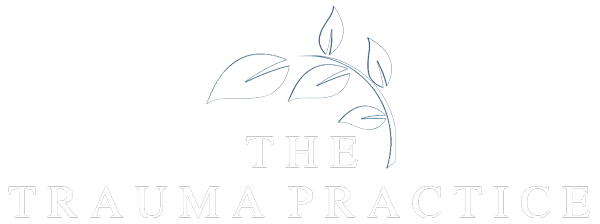Phobia Therapy
Phobia therapy helps you to address and re-process the underlying cause of your phobia difficulty through a somatic and psychological approach. We use EMDR, psychotherapy and body psychotherapy and behavioural therapy to help you with phobia difficulties.
Phobias affect over 10 million people in the UK. They can interfere with daily life and cause a somatic and psychological reaction more commonly known as a panic attack. Symptoms are not mild and cannot be rationalised away through positive thinking.

What Is A Phobia?
A phobia is an anxiety disorder which is characterised by an extreme, irrational fear or aversion to something. A phobia might be related to an object, situation, place, animal, noise, body function or person. Coming into contact or the thought of a particular object or situation can cause an irrational fear and anxiety.
Phobias can be simple or complex. A simple phobia is something we grow out of with age. Complex phobias are phobias which might cause us to have an intense reaction to a situation or object. Reactions are intense and affect us physically and mentally. A complex phobia might have started with a specific trauma in childhood but does not leave us in adulthood.
What Causes A Phobia?
Phobias are believed to have their roots in trauma. A highly traumatic event is experienced and a phobia anxiety results from the trauma. This fear can get transferred to similar situations or objects. Phobias can also be passed on through other family members which is a learnt behaviour. Sometimes clients report no tangible cause of a particular phobia or cannot remember a specific cause.
People who are phobic of something might use avoidance and complex management strategies to avoid coming into contact with an object or situation.
Phobias can affect people from any age, gender, background or ethnicity.


Phobia Symptoms
Phobia symptoms are characterised by excessive physical and emotional responses caused by coming into contact with something that you are phobic of. Responses could include: avoidance behaviours, intrusive thoughts, excessive fear, panic attacks, anxiety attacks, feeling sick, catastrophizing, excessive sweating, dizziness, racing heart, shallow breathing, shaking, feeling sick.
Common Phobias
Phobias are varied and can include any type of object or situation. These are the most common phobias in the UK.
Fear of: heights, needles, social situations, spiders, dogs, flying, medical procedures, the dentists, public speaking or confined spaces.


Psychotherapist & EMDR Practitioner
Matthew Alderton - MA, BSc, Dip, Dip Psych.
I trained at CCPE in London to become a counsellor and psychotherapist. I am also an EMDR practitioner.
I use an integrated approach to help people with phobia difficulties. The approaches I use are: EMDR, behavioural therapy, psychotherapy and body psychotherapy. EMDR gets to the root cause of a phobic difficulty and can help to reduce symptoms caused by a phobic trigger. This is achieved by desensitisation and reprocessing using EMDR billateral stimulation.
I am approachable and down to earth which can help you feel well held and comfortable working through your phobic difficulty. I look forward to hearing from you.
Phobia Therapy
Whilst some phobias are manageable through an avoidence strategy this is not always possible. Sometimes it is not possible to avoid a phobia if you want to enjoy or take advantage of specific services in life. Examples include flying to another country for a holiday, seeing a dentist for treatment or being vaccinated against harmful viruses or diseases.
I use an integrative approach to help my clients with phobias. These include psychotherapy, behavioural therapy, EMDR and body based psychotherapy.
EMDR stands for eye movement desensitisation & reprocessing therapy. It is the leading evidence based treatment for PTSD. It is also used to help with phobias. EMDR can help desensitise you to a phobia trigger, the root cause of a phobia and help with future exposure to a phobic trigger. It works by way of billateral stimulation. Billateral stimulation is administered in the form of vibrating buzzers, auditory tones, body taps or eye movements.
EMDR helps to reach the neural network which is causing the phobic fear. When you are phobic of something you have an irrational fear of it. When we speak about a phobia in a rational way in traditional therapy we are not engaging the part of the brain which triggers the stress response.
Phobia Therapy Approaches

Bilateral Movement Demonstration
EMDR therapy utilises bilateral stimulation. Bilateral stimulation refers to a gentle stimulation of the right and left side of the body alternately. Bilateral stimulation is carried out at different speeds depending on the EMDR therapy phase of treatment.
This can include following a finger, light stick or moving ball. It can also include physical body tapping, auditory beats or bleeps or vibrating buzzers. Or a combination of several forms of billateral stimulation. Click on the video and follow the ball. This is an example of billateral eye movement.
Phobaia Therapy Benefits
Trigger reduction
Phobia therapy can help reduce or dispell phobic triggers reducing the need for avoidance and management strategies.
Homeostasis
When we stop being triggered the nervous system can settle down helping you to restore balance and homeostasis in the body.
Freedom
Feel freedom live your life without being controlled by the fear of phobia triggers.
Happy
When you regain control of your phobia symptoms and are tiggered less you are able feel freedom to live your life and feel happier.

Phobia Therapy FAQ's
How long will phobia therapy last?
Everybody is different with regard to how long therapy lasts. If your phobia is caused by a single event trauma therapy is likely to be shorter than if your phobia has several strands to its origin. On average a client will make progress over a twelve week period.
Dow does EMDR therapy work?
EMDR therapy works by using bilateral stimulation to help desensitise a phobic trigger or historical strands and knots related to it.
How can I get the most out of phobia therapy?
With any therapy making changes takes time. It is important to commit to a process and be consistant.Work through the problem at complete therapy to help maintain long lasting change.




